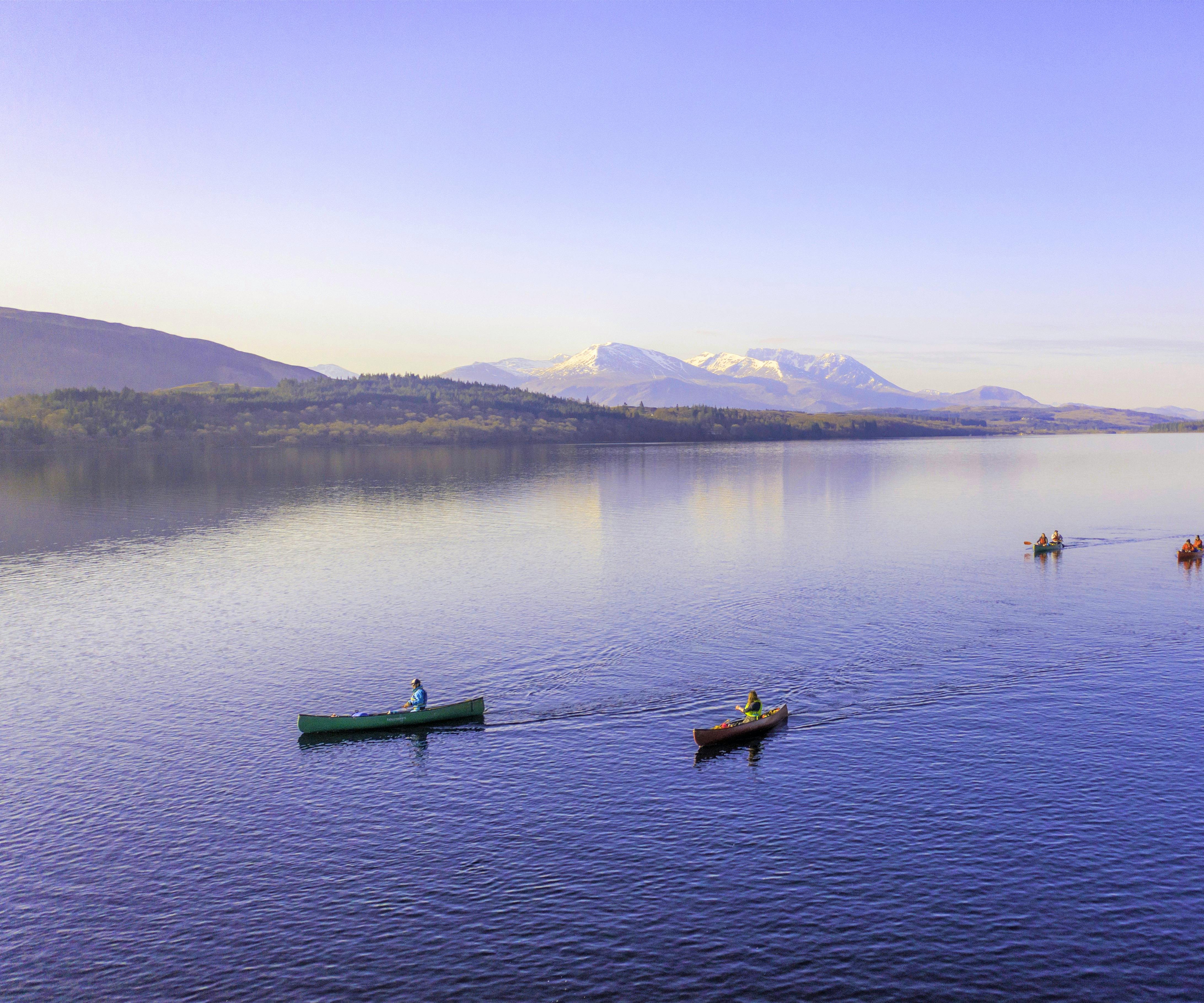Climbing Kilimanjaro Cost: What Are the Real Expenses Of Your Adventure?
How Much Does it Cost to Climb Kilimanjaro?
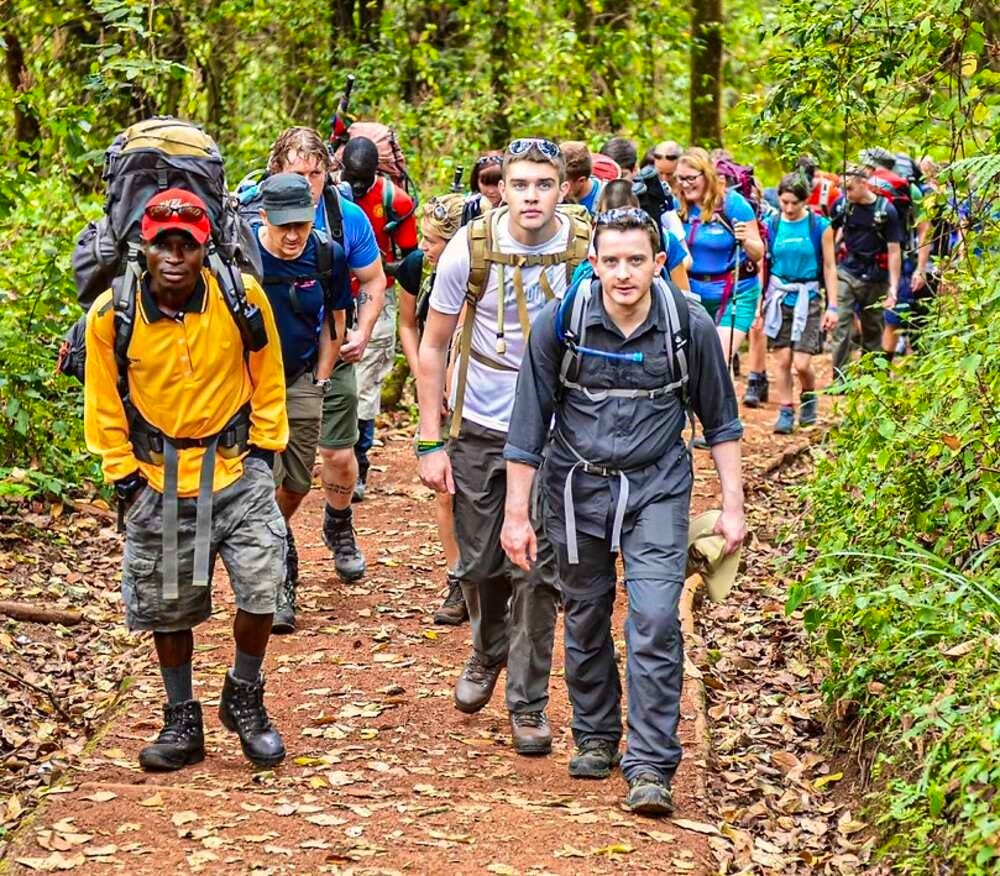
International Flights
Entry Visas
British and European passport holders: US$50
American passport holders: US$100
East African citizens can enter Tanzania without a visa but must have valid identification.
Exempt countries: Some countries are exempt from visa requirements. You can find the list of these countries on the Tanzania Immigration Department website.
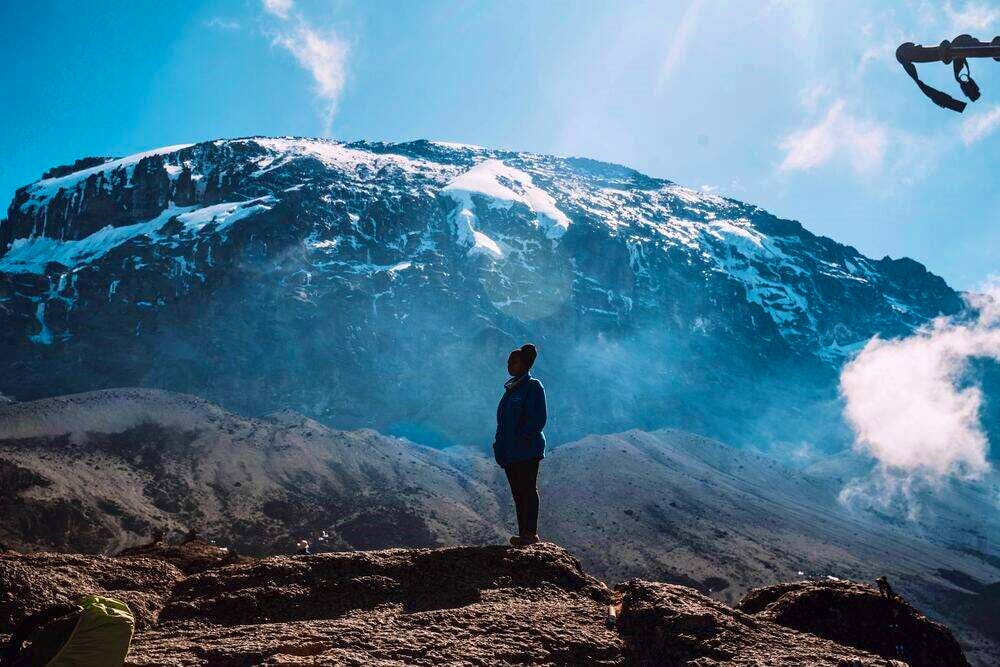
Vaccinations
Yellow fever: You may be required to present proof of yellow fever vaccination, especially if travelling from a country where yellow fever is present.
Hepatitis A and B: Recommended for most travellers.
Typhoid, Meningitis, and Tetanus: Should be confirmed before setting off.
COVID-19: Not mandatory.
Number of Days on The Mountain
Group Size
Did you know: If you don't see your ideal Kilimanjaro trip date listed on Skyhook, we may be able to open a new group or setup a private trip for 2 or more people in your party. Contact us.
Kilimanjaro National Park Fees
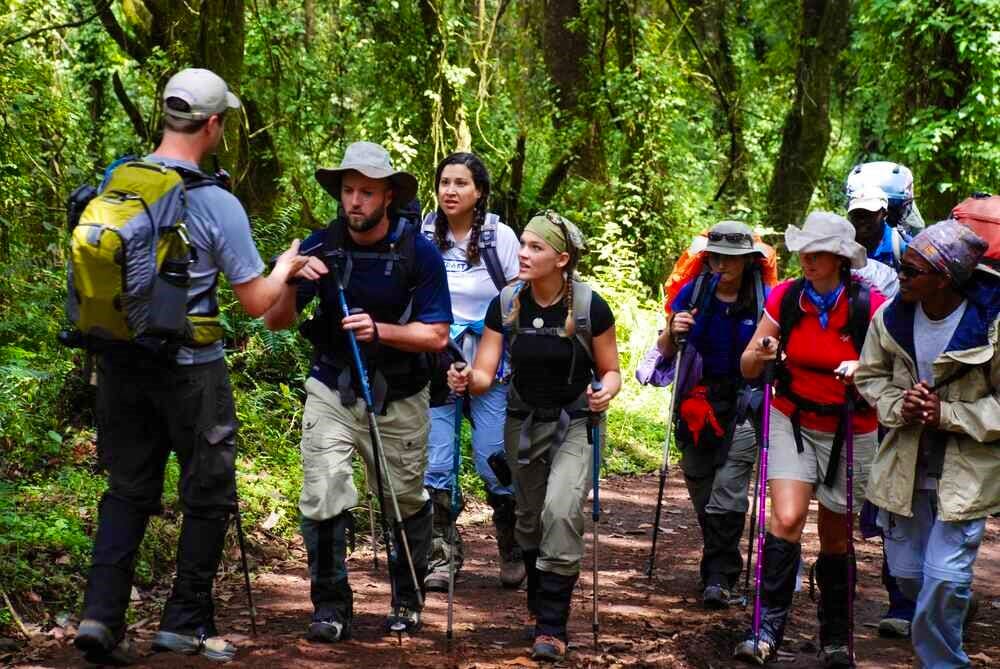
Conservation fees: This fee is for the National Park's protection, upkeep, and maintenance. It's US$70 per day per trekker. So, if you're on a 7-day Machame route, that's US$490 for conservation.
Camping fees: You'll be camping if you're not on the Marangu route, which has huts. Costs for this is US$50 per trekker per night. For a 7-day Machame trek, you'd spend six nights camping, adding up to US$300.
Hut fees: Exclusive to the Marangu route, these are US$60 per night per trekker. So, a 6-day Marangu trek would cost you US$300 in accommodation.
Rescue fees: Whether you need rescuing or not, this service costs a US$20 fee per trekker per trip.
Crater camping: If you plan to camp inside Kilimanjaro’s crater, it’s an extra US$100 per trekker per night.
Guide and porter entrance fees: The park also charges an entrance fee for guides and porters, usually US$2 per support crew member per trip.
Sales VAT: The Tanzanian government charges 18% Value Added Tax, which should be added to your total park fees.

Hiking Crew Wages
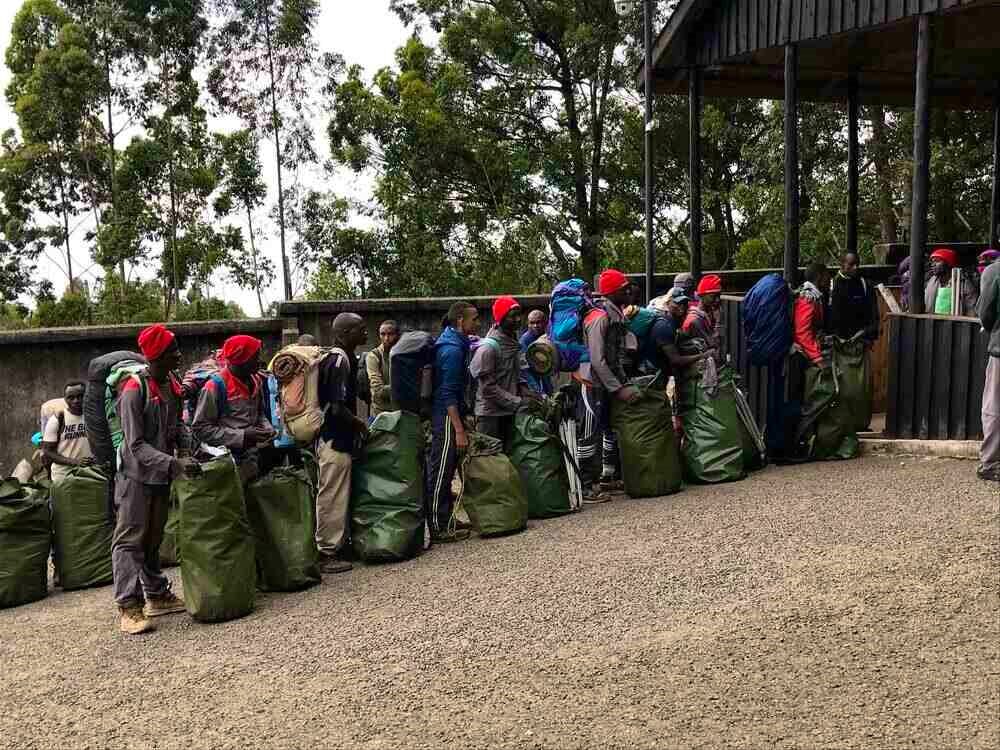
Guides: A guide usually receives between US$20 - US$40 per day. These experts lead you up the mountain, ensuring your safety and offering invaluable insights into the trek.
Assistant guides and cooks: The cooks usually earn between US$10 - US$15 per day. They're responsible for preparing all your meals during the trek, which is no small feat considering the challenging conditions.
Porters: Porters typically earn between US$8 - US$10 per day. They set up camp and carry the equipment, food, and your extra gear, making your trek more manageable.
Food and Water Supplies
Food: US$10 - US$20 per day
Water: US$1 - US$3 per litre
Trekking Equipment and Maintenance
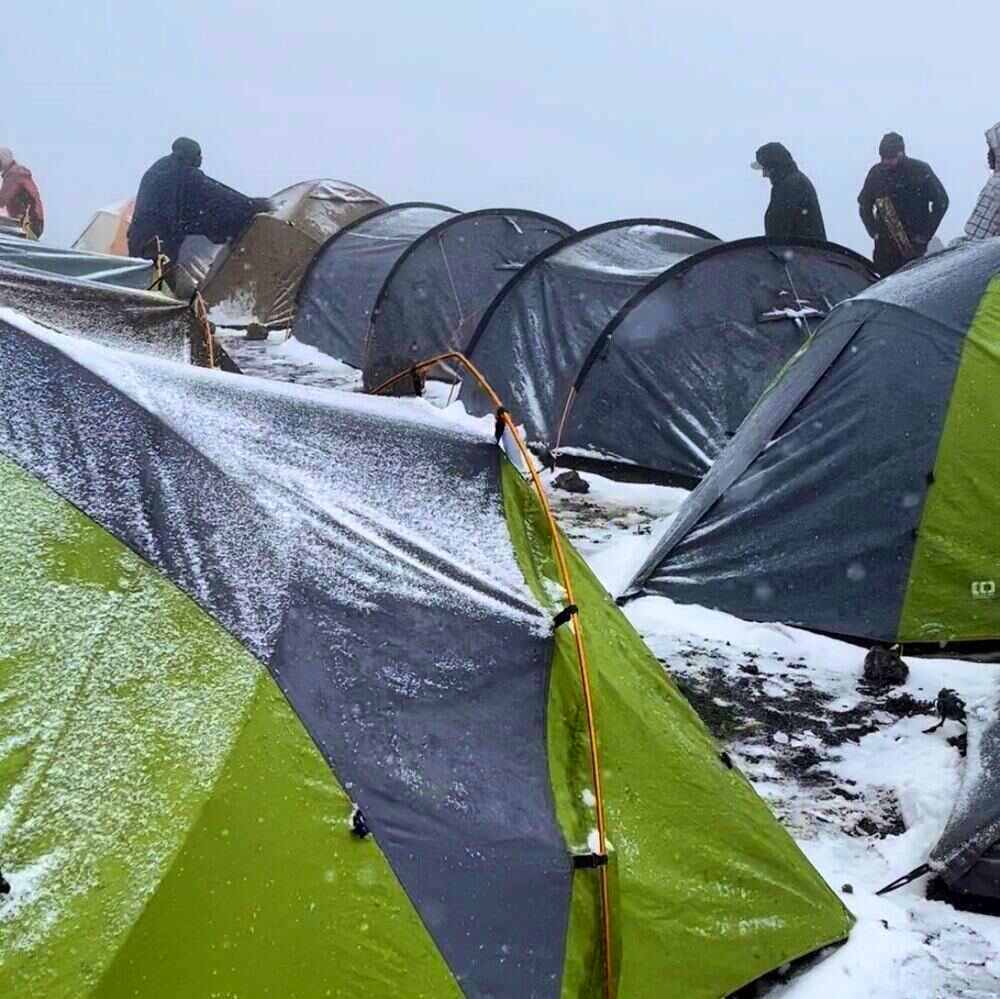
Gear maintenance: The equipment on the mountain takes a battering. Quality operators ensure that all gear, from tents to cooking utensils, is well-maintained. This maintenance is a cost that's factored into your trek package.
Quality equipment: Well-maintained, good-quality equipment is essential for your safety and well-being. This includes tents and sleeping bags, cooking stoves, and medical kits.
Transportation costs: These are about US$100 per Kilimanjaro trip, depending on the route choice. This includes getting all the equipment to and from the mountain.
Tips and Gratuities
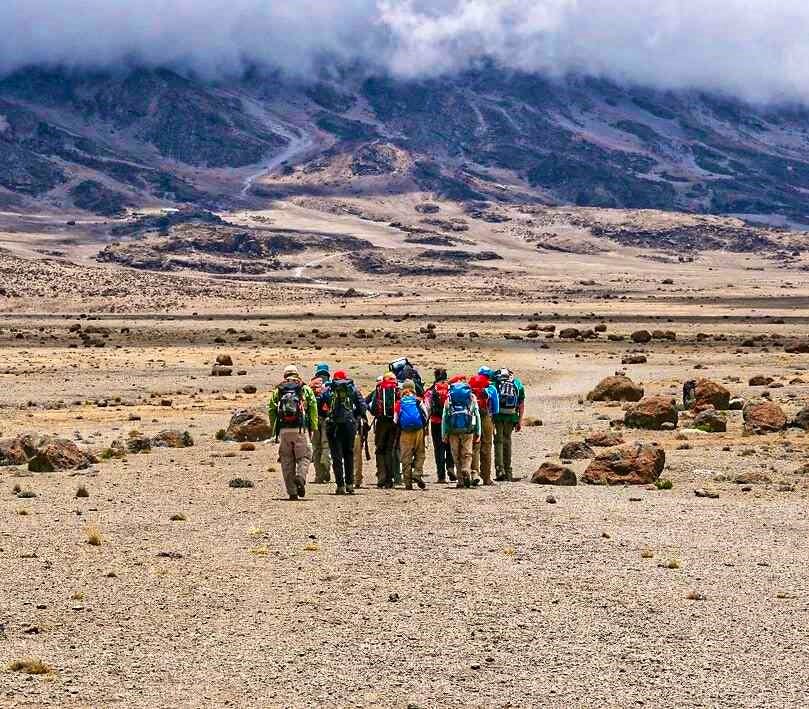
Personal Items and Extras
Personal gear: Think hiking boots, insulated jacket, moisture-wicking clothing, sleeping bag liner, and a quality camera to capture the experience. These items may cost anywhere from US$100 to US$500 in total.
Medical supplies: From altitude sickness medication to a basic first-aid kit, you'll need to purchase these essentials before your trek.
Snacks and hydration: While meals are usually included in your package, you can bring your favourite energy bars or electrolyte tablets.
Kilimanjaro travel insurance: Travel insurance is necessary and can range from US$50 to US$500.
Souvenirs and gifts: Whether it's a Kilimanjaro t-shirt or local crafts, allocate some funds for keepsakes.
Connectivity: If staying connected is essential, consider the cost of local SIM cards or satellite phones.
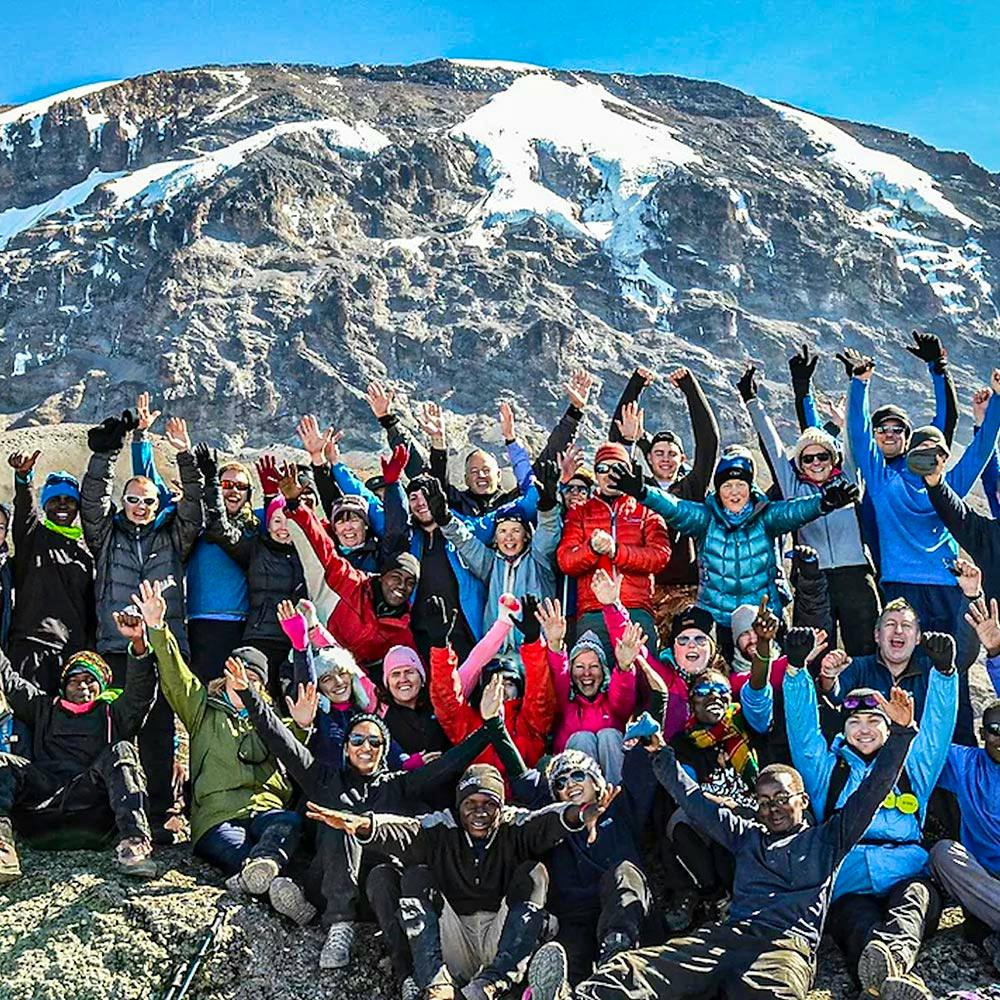
Book Your Kilimanjaro Trek Through Skyhook and Get an All-Inclusive Package
Professional mountain guides, cooks, and porters.
Accommodation: Hotel stay before and after the trek, and tents during the trek.
All tour permits and camp fees.
-29°C Extreme Limit sleeping bags and mats.
Airport transfers.
All meals during the hike (breakfast, lunch, and dinner)
Dinner and breakfast at the hotel pre- and post-trip.
Filtered water throughout the trek.
Skyhook’s Guided Mount Kilimanjaro Trips
Machame Route (6-Day Trek) priced at $1,999 per person
Lemosho Route (8-day trek) priced at $2,650 per person
Lemosho Route (7-day trek) priced at $2,250 per person
Machame Route (7-day trek) priced at $2,250 per person
Marangu Route (6-day trek) priced at $1,999 per person
Rongai Route (7-day trek) priced at $2,250 per person
Final Thoughts on Climbing Kilimanjaro Cost
Other Kilimanjaro Articles:
Find your next adventure
Why Skyhook?
Join over 27,000 Skyhook adventurers who've used our platform to book directly with our vetted local guides, at local prices (we never markup).
Expert Local Guides
Experienced local guides, handpicked by us.
Best Prices
Never pay a markup on the local guide's price.
Exclusive Club
Earn loyalty rewards every time you travel.
Great Social Vibes
Small group tours provide a richer experience.
Stellar Feedback
Over 2,800 reviews, average of 4.9/5 stars.











